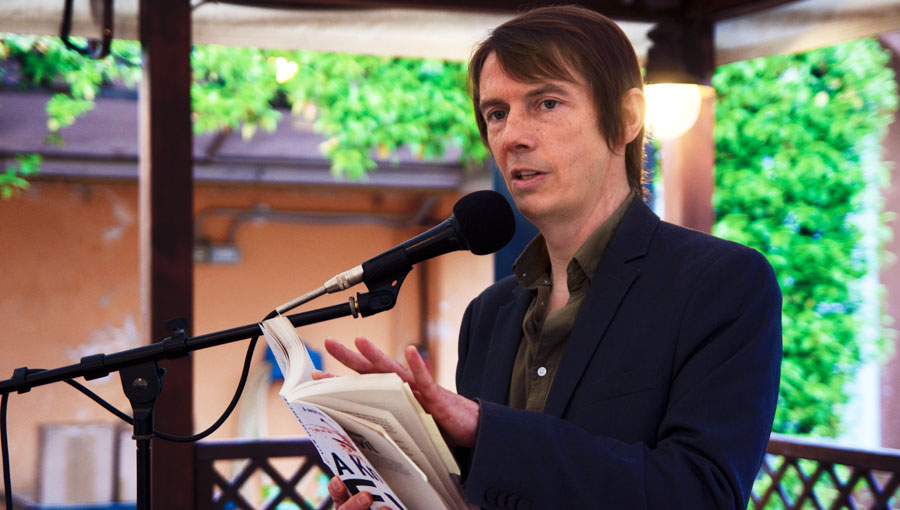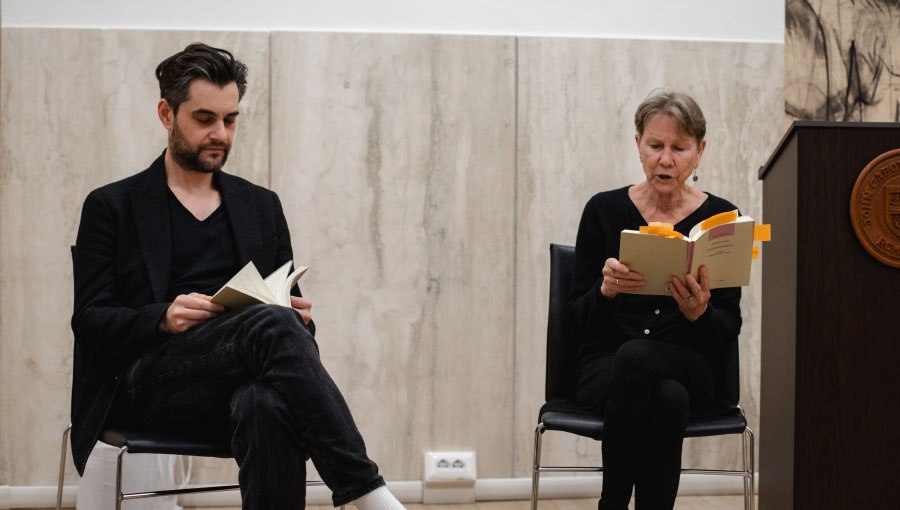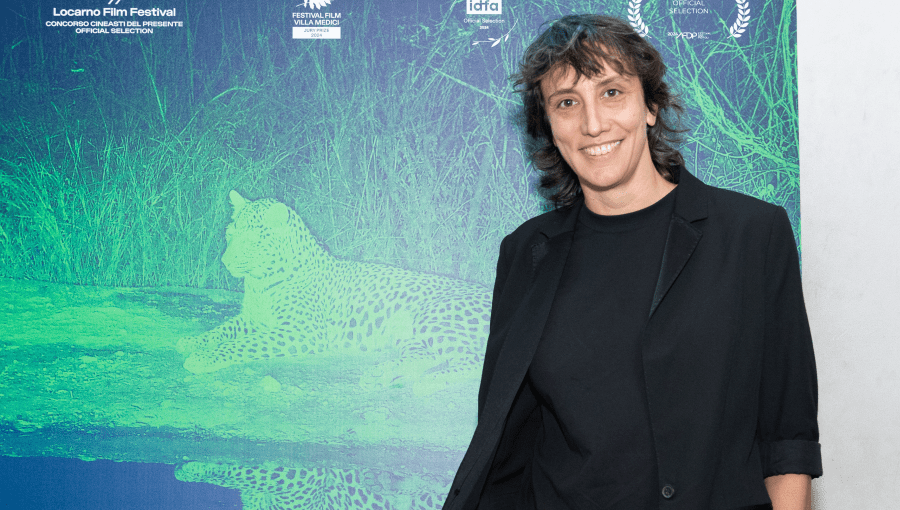Professor Aidan Fadden Publishes First Novel A Known Evil
English Literature professor Aidan Fadden recently published his first novel A Known Evil (Harper Collins), the first of a three-novel series under the pseudonym Aidan Conway. A freelance editor, translator, and literary reviewer, his poetry has been published in Stand, The North, Magma, Lunar Poetry, and Cordite, and in translation in Italian literary magazines such as Pagine and Saragana. He has also reviewed for PN Review, Fortnight and The Contemporary Poetry Review. Professor Fadden is currently working on a collection of short stories and a series of crime novels set in contemporary Italy. His second novel- A Cold Flame – is due out this summer from Harper Collins ‘Killer Reads.’
You have written poetry, but this is your first attempt at prose. How do they compare?
When writing poetry there is little room for maneuver in the sense that a word too many or a lazy word choice sticks out like a sore thumb. As a poet, you learn to pick up on this and as most poems tend to be relatively short, especially if you want to get them published in magazines, you develop something of a miniaturist’s eye for detail.
Novel readers are more forgiving as they can skip and are following the story first and foremost, which gives you a little more leeway. I think that what writing poetry does do is make you very conscious of the words you choose, especially in description. Any poetic skills you might have can be put to good use in making the prose memorable, fresh, and tight. A well-turned metaphor, a poet’s stock in trade, can help the prose to hit home.
What inspired you to write a crime novel set in Rome?
 A writer needs something to say and I felt at the time of beginning A Known Evil that I was not short on material for a crime novel. Rome is a beautiful and extremely safe destination loved by tourists and travelers the world over, and rightly so. But then there is the dark side. The politics. The intrigue. I was also learning about the corruption and occasional violence that visitors will never have any cause to see or experience, and the not infrequent centrality of nepotism and bribery. Immigration too had exploded onto the national and local agenda at around the beginning of the second decade of the century. It presented many challenges but also offered some great potential storylines. There was also anger and frustration as the credit crunch was hitting many people hard. I felt I could build a narrative around what I had and maybe come up with some answers along the way.
A writer needs something to say and I felt at the time of beginning A Known Evil that I was not short on material for a crime novel. Rome is a beautiful and extremely safe destination loved by tourists and travelers the world over, and rightly so. But then there is the dark side. The politics. The intrigue. I was also learning about the corruption and occasional violence that visitors will never have any cause to see or experience, and the not infrequent centrality of nepotism and bribery. Immigration too had exploded onto the national and local agenda at around the beginning of the second decade of the century. It presented many challenges but also offered some great potential storylines. There was also anger and frustration as the credit crunch was hitting many people hard. I felt I could build a narrative around what I had and maybe come up with some answers along the way.
The hardest part of that was understanding the workings of the judiciary and the various police forces and making sure that what I was writing was plausible and reasonably authentic. That required research but I have always followed politics closely, so I was fairly well informed on that front. I also knew the city well having lived there for almost fifteen years. As a language consultant, I had had some access to the ‘corridors of power’. Being immersed in the Italian reality, getting all that across to a non-Italian readership without bamboozling them with historical detail and ideological references required me to stand back from my writing and step outside of myself a little.
What character do you most identify with in your novel and why?
Inspector Michael Rossi is the lead protagonist and the first character I created. He is a principled and determined detective with a penchant for philosophy and a reluctance to follow the rules when they go against his conscience. As such, I can see him as a part of me but only as a kind of created alter ego, although he does have some Irish roots too. His journalist friend Dario Iannelli is a thoroughgoing cynic and conspiracist but he acts courageously. He works for a pioneering investigative newspaper and is something of a thorn in the side of the establishment, which draws him into plenty of high-risk situations. I couldn’t do what he does but I admire his tenacity and his deep mistrust of authority.
What is the role of the creative writer in today’s society?
To give a voice to issues outside of many of the mainstream outlets and to entertain. Good conversation is getting harder to come by. With a novel you can have someone’s undivided attention for over ten hours. When else would you get that chance? I think it’s an opportunity not to be missed. It’s up to you how you use it.
What is your advice for young writers starting out?
Start writing and keep reading widely. Then when you feel your work has some substance to it, seek publication in all its forms, even with the smallest of outlets and venues. It will give you confidence and pleasure to be seen in print and to get an audience’s reaction at a reading or an open mic night. You will also begin to meet like-minded individuals and begin to find your way through the jungle of the literary world, learning the necessary survival skills along the way. Oh, and finish the first draft. Then you can go back and work on it.
Read “Italy and the Inspiration for A Known Evil” by Aidan Conway in Writing.ie
Read “Irish-Post-Aidan-Conway” in the Irish Post






